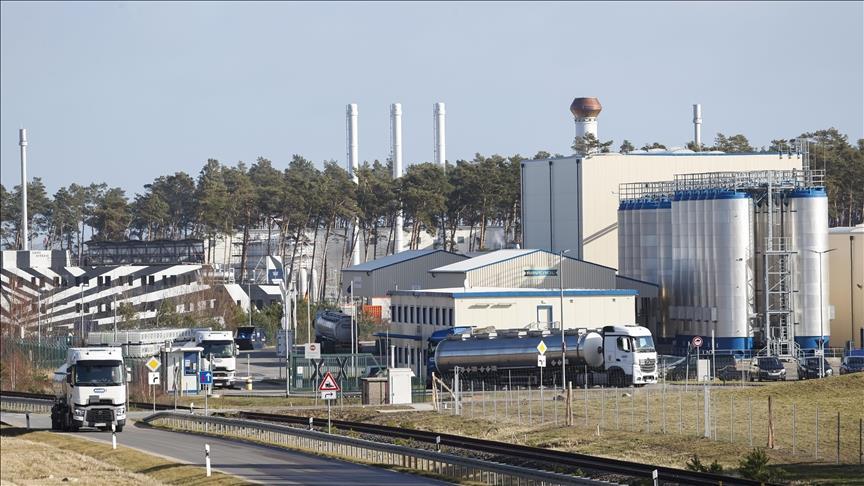Russia earned a record €158 billion in revenue from fossil fuel exports in the first six months of the war from Feb. 24 to Aug. 24, despite lower exports, according to an analysis by the Centre for Research on Energy and Clean Air (CREA) on Tuesday.
The analysis found that surging fossil fuel prices meant that Russia's current revenue is far above the level of previous years, with the doubling of the average fossil fuel price relative to the level in 2021.
Russia's exports were down 18% compared with the record level reached at the start of the war, driven by reductions in exports of pipeline gas, oil products and coal due to sanctions.
The overall fall in export volumes was driven by a drop in exports to the EU, which plummeted by 35%.
Crude oil exports held the biggest share in Russia's revenues at €76 billion, followed by pipeline gas at €35 billion, oil products at €26 billion, coal at €13 billion and liquefied natural gas at €9 billion.
'These revenues contribute directly to Russia's military budget. We estimate that at least €43 billion has gone directly into the coffers of the Russian state from its mineral extraction tax and export duty since the beginning of the war,' the CREA analysis showed.
The €158 billion in total revenue is estimated to be higher than Russia's €100 billion war expenditure, while damages caused by the war to Ukraine's infrastructure increased to €110 billion and the cost of rebuilding destroyed Ukrainian assets is projected at almost €200 billion, CREA said.
-EU biggest importer, followed by China
During the first six months of the war, the European Union (EU) imported 54% of Russian supplies, worth approximately €85 billion.
Within the EU, the largest importers were Germany with €19 billion, the Netherlands with €11.1 billion, Italy with €8.6 billion and Poland with €7.4 billion. France had sizeable imports worth €5.5 billion followed by Bulgaria with €.5.2 billion, Belgium with €4.5 billion and Spain with €3.3 billion.
After the EU, the biggest fossil fuel importers from Russia were China with €34.9 billion, Turkey with €10.7 billion, India with €6.6 billion, Japan with €2.5 billion, Egypt with €2.3 billion and South Korea with €2 billion.
'Combined, the EU, NATO, and G7 countries imported 56% of Russia's fossil fuel exports in July-August. This is down from 75% before the invasion but remains substantial,' the analysis said.
India, China, the United Arab Emirates and Egypt saw the most significant increases in imports in the July-August period, compared with the start of the war. All of the increases were driven by crude oil imports, with China also increasing coal imports.
By Nuran Erkul Kaya
Anadolu Agency
energy@aa.com.tr


